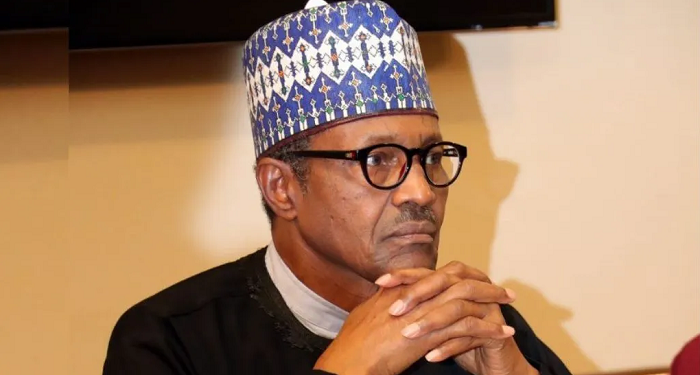IMF slashes Nigeria’s growth forecast to 3.2%
The International Monetary Fund (IMF), on Tuesday, sliced its earlier 2022 growth forecast for Nigeria to 3.2 percent from the 3.4 percent it projected in June.
This downgrade is due to the prevailing impacts from global supply chain disruptions, which have driven up inflation substantially and raised fears of global recession as central banks tighten monetary policy to tame soaring food and energy prices.
The IMF said economic growth in Nigeria, Africa’s largest economy, could sink further to 3.0 percent in 2023.
In its World Economic Outlook (WEO) released in Washington at its ongoing 2022 joint Annual Meetings with the World Bank, the fund also cut global growth for the fourth time from 6.0 percent in 2021 to 3.2 percent in 2022 and 2.7 percent in 2023.
This is the weakest global growth forecast since 2001, except for the global financial crisis and the acute phase of the COVID-19 pandemic, and it reflects significant slowdowns for the largest economies: a US GDP contraction in the first half of 2022, a euro area contraction in the second half of 2022, and prolonged COVID-19 outbreaks and lockdowns in China with a growing property sector crisis.
Sub-Saharan Africa is now expected to slow to 3.6 percent from 4.7 percent in 2021 and then could pick up to 3.7 percent in 2023.
The annual event – the first in-person in two years since COVID began – is being held at a time when the world is facing a double whammy of surging inflation and weak growth.
About a third of the world economy faces two consecutive quarters of negative growth, according to the IMF, with global inflation now forecast to rise from 4.7 percent in 2021 to as high as 8.8 percent in 2022. It could, however, decline to 6.5 percent in 2023 and further to 4.1 percent by 2024.
Upside inflation surprises have been most widespread among advanced economies, with greater variability in emerging market and developing economies, and the IMF warned that the risks to the outlook remained unusually large and to the downside.
Pierre-Olivier Gourinchas, director of research at the IMF, speaking at a media briefing on the WEO, said despite the slowdown, inflation pressures were proving broader and more persistent than anticipated. Global inflation is now expected to peak at 9.5 percent in the third quarter of 2022, before decelerating to 4.1 percent by 2024.
Inflation is also broadening beyond food and energy. Global core inflation rose from an annualised monthly rate of 4.2 percent at the end of 2021 to 6.7 percent in July for the mid-income countries, as downside risks remain elevated, and policy trade-offs are becoming acutely challenging.
The IMF believes that wading off these risks starts with global monetary policy staying the course of a tightening stance to restore price stability.
It said: “Momentary tightening is critical to avoid inflation de-anchoring as a result of households and businesses basing their wage and price expectations on their recent inflation experience.
“Fiscal policy’s priority should centre around protection of vulnerable groups through targeted near-term support to alleviate the burden of the cost-of-living crisis felt across the globe. But its overall stance should remain sufficiently tight to keep monetary policy on target.
“Intensifying structural reforms to improve productivity and economic capacity would ease supply constraints and in doing so support monetary policy in fighting inflation. Policies to fast-track the green energy transition will yield long-term payoffs for energy security and the costs of ongoing climate change.”
In the report, the IMF highlighted that the risk of monetary, fiscal or financial policy miscalibration has risen sharply at a time of high uncertainty and growing fragilities.
Global financial conditions could deteriorate, and there are fears of a continued strong dollar should turmoil in financial markets erupt.
It said inflation could yet again prove more persistent, especially if labour markets remain extremely tight, while a further escalation of the raging war in Ukraine could exacerbate the energy crisis.
The IMF fears that increased price pressures remains the most immediate threat to current and future prosperity, by squeezing real incomes and undermining macroeconomic stability.
It said: “Central banks, therefore, need to keep a steady hand with monetary policy firmly focused on taming inflation, complemented by appropriate fiscal response to the cost of living and energy crisis which has also become a serious challenge for many countries.
“Fiscal policy should not work at cross-purpose with monetary authorities’ efforts. Doing otherwise will only prolong inflation and could cause serious financial instability. Winter 2022 will be challenging, but winter 2023 will likely be worse. Price signals will be essential to curb energy demand and stimulate supply.”
The fund warned against price controls, untargeted subsidies or export bans, which it described as fiscally costly.
The IMF said addressing growing government debt distress caused by lower growth and higher borrowing costs required a meaningful improvement in debt resolution frameworks.
An orderly debt restructuring through the group of 20s common framework is urgently needed to avert a wave of sovereign debt crisis, according to the report.
“Time may soon run out,” the Washington-based fund warned.








